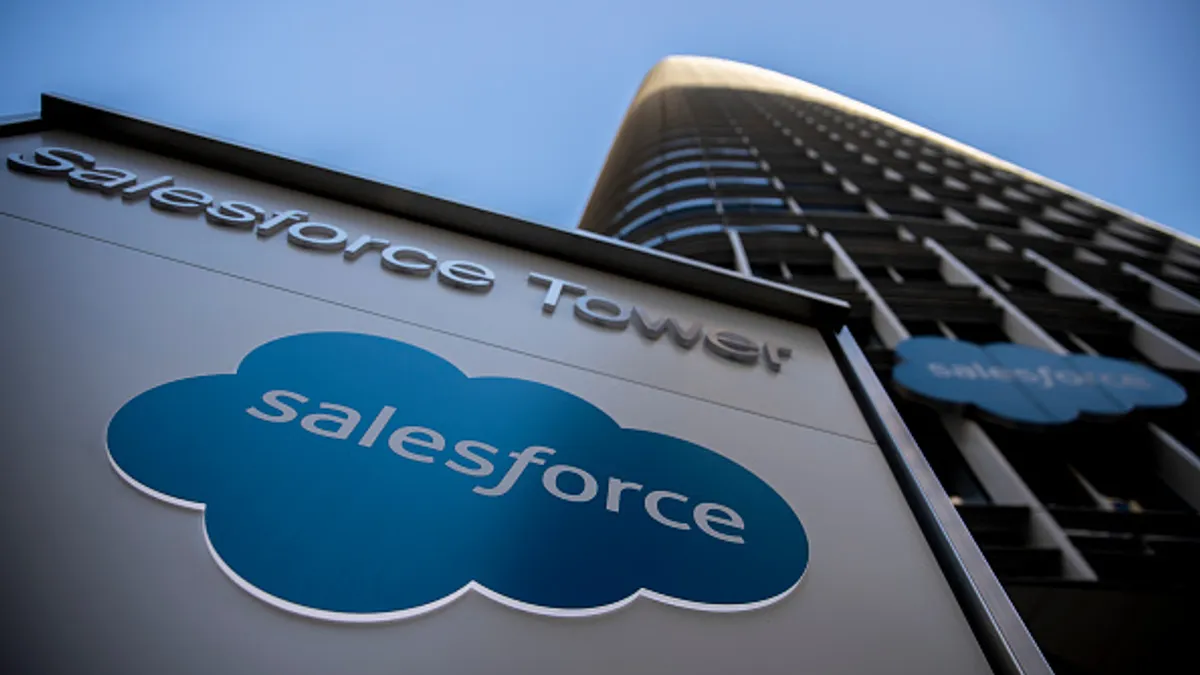Dive Brief:
- Salesforce will increase the price of several core products, including Enterprise Editions for Sales Cloud and Service Cloud, according to a Tuesday announcement.
- The company will bump list prices for several enterprise offerings by an average of 6% beginning Aug. 1. “These increases reflect the significant ongoing innovation and customer value delivered through our products,” the software company said.
- Slack, which introduced an Enterprise+ plan Tuesday, got a price hike too, with business plans rising 20% to $15 per user per month for annual billing customers effective Tuesday. New prices for Agentforce, first announced last month, went into effect Tuesday. Customers can purchase Agentforce add-ons, starting at $125 per user per month.
Dive Insight:
Salesforce continues to pitch itself as an agent orchestration platform amid a heated vendor race for AI dominance. The shift is reflected in the package updates announced this week as Agentforce add-ons and Agentforce 1 Editions replace existing Einstein add-ons and Einstein 1 Editions.
Last month, Salesforce moved to acquire software company Informatica for approximately $8 billion. Salesforce sees the deal as a “key enabler” for the “next phase of AI-driven growth,” according to Robin Washington, president and chief operating and financial officer at the company.
In recent months, the company has also expanded its model lineup in support of agentic AI, made steps to bolster AI agent capabilities and began reaping the financial rewards of the push.
The new plans and packages come as other vendors are reworking pricing models, too.
“There have been quite a few companies that have raised prices in the last 18 months,” Arun Chandrasekaran, distinguished VP analyst, told CIO Dive.
IT leaders and their enterprise pocketbooks have felt the crunch. Nearly three-quarters of IT pros said increasing AI use has made cloud bills “unmanageable,” according to a Tangoe report. IT pros attribute the rise in software costs to a deluge of AI features.
“The challenge that companies, like Salesforce, are trying to navigate is that they’re really trying to figure out what is the right pricing model for this,” Chandrasekaran said.
Salesforce introduced flexible pricing for Agentforce after initially providing a per-conversation pricing model. Chandrasekaran expects vendors to continue to iterate away from traditional models, especially as more work happens outside the purview of a human being.
“They’re trying to introduce these new pricing models to really figure out how they can meet customer expectations,” Chandrasekaran said. “CIOs today have a very unique opportunity to ensure that the software that they’re paying for is delivering true business value.”
Enterprises have a few weeks to recalculate for higher bills or find alternative services as the Salesforce August deadline approaches.















